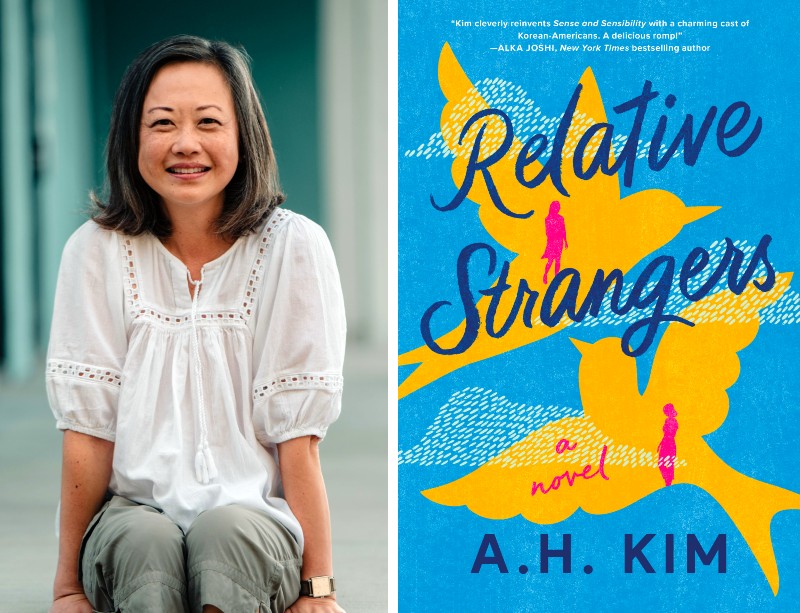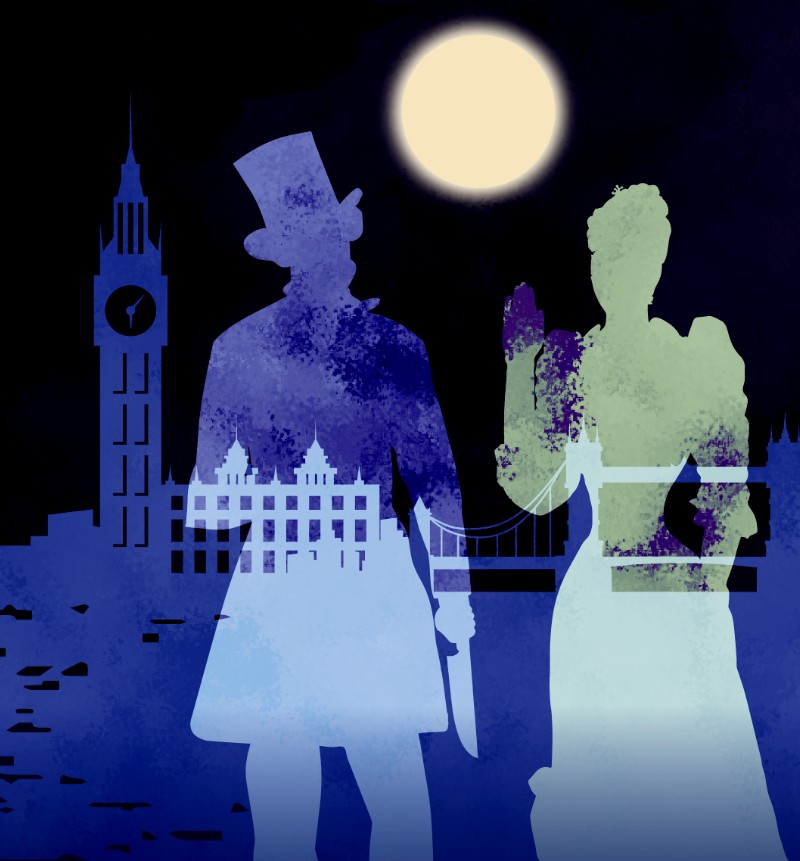Love, Grief, Class, and Cancer: A.H. Kim's “Relative Strangers" reimagines a Jane Austen plot set in modern-day California

The details of who knows whom, and what happened in their pasts, result in drama in Ann Arbor author A.H. Kim’s retelling of Sense and Sensibility through her new novel, Relative Strangers, set in modern-day California.
Kim was an attorney and worked at a Fortune 200 company before retiring to write full-time. She raised her family in San Francisco, is a cancer survivor, and now lives in Ann Arbor with her husband. Kim will be in conversation with Camille Pagán at Literati Bookstore on Tuesday, April 2, at 6:30 pm.
The parallels to Jane Austen’s novel are revealed in the premise of the book.
Sonic Journey: Gastón Reggio Ventures From "Michigan" to North Carolina on New Jazz-Fusion Album

For Gastón Reggio, Michigan represents the ideal name for his second full-length album.
The Uruguayan jazz composer and multi-instrumentalist penned most of the album’s tracks while living in Ann Arbor and wanted to capture those experiences from 2019 to 2021.
“Each song has and [strives] to tell a story about things that happened during that time. Particularly, I was looking for an [album] name that worked well in English and Spanish,” said Reggio, who previously drummed with Chirp and is now based in Durham, North Carolina.
“My producer Rodrigo [Cotelo] … mentioned naming the album after the song ‘Michigan’ because it summarized my [time] here and served as the basis for some of the stories that are [sonically] told through my songs.”
On Michigan, Reggio chronicles an inspirational sonic journey filled with jazz, prog rock, and world music influences. The album starts in the Great Lakes state and whisks listeners across the Appalachians to find new musical adventures in North Carolina.
“I just let the ideas for the songs come without any restrictions, and I like to combine all of my influences to create a [personal] way to express myself through music,” he said. “I hope listeners realize the depth and honesty of this music; it’s a part of me, and if you listen to it, you will get to know me a little bit more.”
To learn more about Reggio, I recently spoke with him about growing up in Uruguay, studying music and jazz drums in Brazil, coming to Ann Arbor and joining Chirp, relocating to North Carolina, working on Michigan, and preparing for several upcoming live shows.
Friday Five: Hannah Baiardi, Jazz Drive, Price, Benji Robot, Oak Openings

Friday Five highlights music by Washtenaw County-associated artists and labels.
This week features ethereal piano ballads by Hannah Baiardi, vaporwave synth-pop by Jazz Drive, electronica by Price, remixes by Benji Robot, and improvisations by Oak Openings.
Everyday Monsters: Fangs and Twang Shares the Horrors and Delights of Michigan and Out-of-State Creatures on Latest Album

After years of writing about monsters, Fangs and Twang didn’t expect to find them in human form.
The country-rock trio of Billy LaLonde (drums, vocals), Andy Benes (guitar, vocals), and Joe Bertoletti (bass, vocals) discovered some people started spreading monstrous misinformation at the height of the pandemic.
In response, Benes channeled that disbelief and frustration into the Ypsilanti band’s opening track, “You Monster,” from its fourth album of the same name.
Alongside explosive electric guitar, organ, and fiddle, he sings, “It’s hard to be you and me / When we can’t tell what’s true / It seems to me that we can’t agree / Even that the sky is blue.”
“That song came to me … and it was done in 20 minutes,” Benes said. “All of the lyrics and all of the music just came out, and that was what was on my mind. [It’s about] not having a common set of facts or a common language that we’re speaking anymore as people and how horrible that is.”
The title track also lays the groundwork thematically for the horrors and delights Fangs and Twang uncovers on You Monster.
Locals Rule: Highlighting the Washtenaw County creatives in the 62nd Ann Arbor Film Festival

The Ann Arbor Film Festival (AAFF) draws experimental filmmakers from across the world, but ever since it began in 1963 it's also made room for local creators to show their works.
The 62nd edition of AAFF is running March 26-31, and the fest's website and YouTube page have a ton of info, interviews, and articles about the hundreds of films that will be screened this year alongside dozens of social events, panels, and exhibitions.
But it's a lot. Like, a lot a lot, which means you would have to comb through a ton of material to figure out the creatives with local connections.
So, being the hyperlocal fans that we are, we did that for you and collected the events, screenings, and installations created by Washtenaw County-associated artists, curators, and film lovers who will have a moment to shine at the 2024 Ann Arbor Film Festival.
A Devilish New Comedy: David MacGregor's "The Antichrist Cometh" debuts at The Purple Rose Theatre

David MacGregor's plays have been performed in 15 countries, including India, Israel, South Korea, and Tasmania.
But the Michigan-born artist develops most of his world premieres right here at home.
Among the works the resident playwright for The Purple Rose Theatre Company debuted on the Chelsea stage are his Sherlock Holmes trilogy, Vino Veritas, Gravity, Consider the Oyster, The Late Great Henry Boyle, and his latest play, the hilarious The Antichrist Cometh, which begins previews there on March 22 and opens March 29.
John, an advertising exec, hasn’t seen Duncan, his old college roommate, for years. John and his wife, Lili, have Duncan and his fiancée, Fiona, for dinner. Fiona is devoutly religious and notices things that bring her to a startling conclusion:
John is the Antichrist!
“The basic idea for this play occurred to me a long time ago," MacGregor says. "I’m not personally religious, but I’ve read the Bible and Koran because they’re such important and influential texts. The Book of Revelations says the Antichrist will arrive on Earth."
MacGregor named his protagonist John, referencing the Book of John and the letters of John, but says, “John is a regular everyday guy who gradually realizes he might be the Antichrist.”
Friday Five: Ani Mari, T. Greens, Rainforest, Elevator Raider, Chirp

Friday Five highlights music by Washtenaw County-associated artists and labels.
This week features alt-country by Ani Mari, an improvisation by T. Greens, drum 'n' bass by Rainforest, electronica by Elevator Raider, and jams from Chirp.
The Voice Within: Mike Green Follows His Instincts on “Listening for the Bell” Album

Mike Green listened to his inner voice but wasn’t sure where it would take him.
The folk singer-songwriter, guitarist, and booking agent ruminated for years about how to share his life experiences.
“I always thought as a younger adult that I wanted to write a book of my personal philosophy, but I never had anything to say,” said Green, who resides in Ann Arbor. “Then when I started writing these songs [during the pandemic] … and all these things I’ve always thought about, they just sort of came out in poetic ways.”
What resulted were 12 insightful tales for his debut album, Listening for the Bell, which explores the ups and downs of following your instincts.
“There’s a bunch of those songs that were written that way, and I just trusted it,” said Green, who started as a touring musician in 1978. “And then what I realized early on—after studying all of this—is that I had been in songwriting school for nearly 40 years.”
That schooling came from representing artists like Utah Phillips, Carrie Newcomer, Jesse Winchester, and John McCutcheon as a booking agent and listening to singer-songwriters like Greg Brown, Kenny White, Chris Smither, and Stephen Fearing.
“Chris Smither, probably more than anybody, is the gold standard to me on how you marry lyrics and words and have them come out … to be that way,” said Green, who started as a booking agent in 1986 and opened his own agency in 2004. “There’s no other way you can say it, and if you don’t say it just the right way, it doesn’t fit.”
Through the Grisly Maze: "Elizabeth Cree" is a puzzle-filled operatic mystery

As the opera begins, Elizabeth is hung for the murder of her husband, the playwright John Cree.
Is she guilty of poisoning him?
John is a serial killer, in the fashion of Jack the Ripper.
Or is he?
You’ll have about an hour and a half to solve the puzzles in Elizabeth Cree, which unravel in 29 scenes and over four timelines and include plays and vaudeville within an opera.
“It’s an interesting and complicated piece,” says Gregory Keller, who directs Unversity of Michigan opera students in this one-act chamber opera, sung in English, that runs March 21-24 at the Lydia Mendelssohn Theatre. Likening it to a hedge maze, he says, “We’re presenting it as a theatrical puzzle, a house of mirrors that the audience gets lost in and, maybe, found in. Each time you go into the maze, you make another connection.”
It’s so much so that conductor Kirk A. Severtson, who coordinates opera at U-M, says audiences who see it twice will delight in discovering Easter eggs, once they know what happened. “You have to see it more than once to get all the nuances,” he says.
But those who see it once will have a chance to figure out just what is happening, after observing three gruesome murders almost in front of their eyes: Keller opted to stylize the crimes, presenting them as Victorian shadow plays.
Friday Five: Scotty Karate, Clangstrum, John Holk & the Sequins, HUES & Gold Midas, The Strange Theory of Light and Matter

Friday Five highlights music by Washtenaw County-associated artists and labels.
This week features alt-country by Scotty Karate, modern classical by Clangstrum, psychedelic country by John Holk & the Sequins, hip-hop by HUES and Gold Midas, and prog-metal by The Strange Theory of Light and Matter.


































